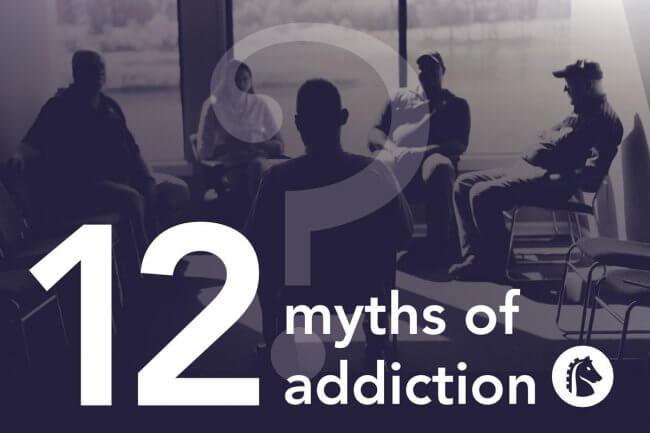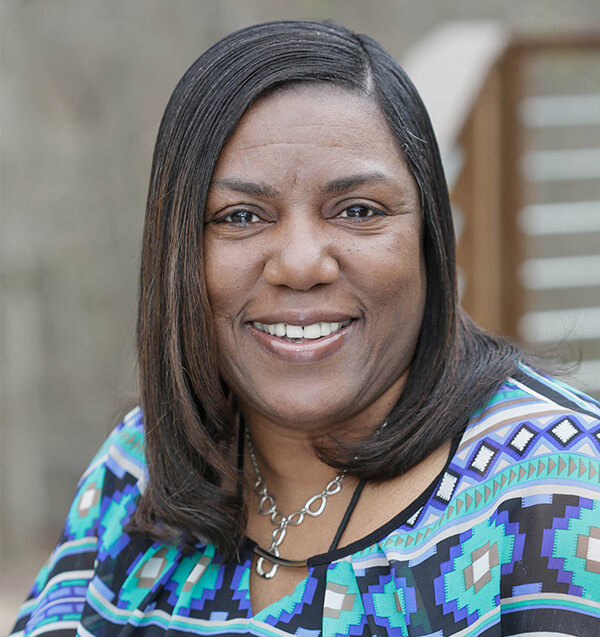From our staff: 12 Myths of Addiction
When it comes to addiction, there are plenty of misconceptions

This fall, the small-town newspaper in Oxford, Mississippi, invited Oxford Treatment Center to help build local awareness about addiction and recovery through a 12-part column series.
Readers of The Oxford Eagle gained insights from our therapists, leaders, medical staff and regional treatment consultants. Each was asked to respond to one of the common misconceptions we encounter in our work with individuals and families, and in our outreach to the broader community.
The result is an overview of the research-based model that informs our approach addiction and treatment today. It’s also a picture of the many ways our society must evolve its ideas about addiction in order to best help those who struggle with it.

Myth #1: Addiction doesn’t happen to good people
 “The people I worked with as a therapist and the people I help get to treatment today are not bad people. They are ordinary, good people who used substances for their coping skill. Life had overwhelmed them at one point or another, and this was what they used to survive. It wasn’t a problem until it became a problem.”
“The people I worked with as a therapist and the people I help get to treatment today are not bad people. They are ordinary, good people who used substances for their coping skill. Life had overwhelmed them at one point or another, and this was what they used to survive. It wasn’t a problem until it became a problem.”
— Mark Russell, MSW, AAC Treatment Consultant
Myth #2: Faith can fix addiction
 “Anytime we talk about recovery and the place of faith, we have to be very careful that we don’t try to substitute one for another. AA won’t get you to heaven, and Christianity won’t make you sober any more than it will cure cancer. But it’s a very beautiful thing when the two come together, because they truly do make a whole person.”
“Anytime we talk about recovery and the place of faith, we have to be very careful that we don’t try to substitute one for another. AA won’t get you to heaven, and Christianity won’t make you sober any more than it will cure cancer. But it’s a very beautiful thing when the two come together, because they truly do make a whole person.”
— Larry Wills, LPC, M.Div., Clinical Therapist
Myth #3: Better parenting would have prevented addiction
 “Right off the bat, we help families realize they’ve been doing the normal thing. When you love someone, it’s normal to want to help them out — bail them out, fix things, give them third, fourth, fifth chances. Yet when you’re dealing with active addiction, those are some of the worst things you can do.”
“Right off the bat, we help families realize they’ve been doing the normal thing. When you love someone, it’s normal to want to help them out — bail them out, fix things, give them third, fourth, fifth chances. Yet when you’re dealing with active addiction, those are some of the worst things you can do.”
— Dee Meux, ICADC, Family Program Coordinator
Myth #4: If my child were addicted, I would know
 “Parents will say, ‘She’s too smart for that. She’s a good young lady.’ The problem is, it’s not about good and bad. And if a kid seems to be doing fine, it’s easy for parents not to pay close attention.”
“Parents will say, ‘She’s too smart for that. She’s a good young lady.’ The problem is, it’s not about good and bad. And if a kid seems to be doing fine, it’s easy for parents not to pay close attention.”
— Reggie Watkins, MLAP, ADC, ICADC, Young Adult Program Coordinator
Myth #5: A little weed is nothing to worry about
 “Anytime you have mixed cultural perceptions, the situation is set up for abuse or addiction. People say, ‘It’s a recreational drug’, but the real issue is those individuals who already have a predisposition for addiction.“
“Anytime you have mixed cultural perceptions, the situation is set up for abuse or addiction. People say, ‘It’s a recreational drug’, but the real issue is those individuals who already have a predisposition for addiction.“
— Billy Young, Oxford Treatment Center CEO
Myth #6: You have to quit work to get treatment
 “I have not yet heard anyone say, ‘My employer doesn’t get it.’ Many people are in an Employee Assistance Program because of an addiction, and their employers are trying to give them a second chance. If an employee is willing to get help, their company is willing to work with them.“
“I have not yet heard anyone say, ‘My employer doesn’t get it.’ Many people are in an Employee Assistance Program because of an addiction, and their employers are trying to give them a second chance. If an employee is willing to get help, their company is willing to work with them.“
— Clinical Therapist Deja Washington, MSW
Myth #7: You can’t have fun sober
 “Whether or not you were the most popular person at a party is not going to matter to you in 10 years. What is going to matter? Your physical health. Having healthy relationships. Learning how to love yourself and take care of yourself. Simply being alive.”
“Whether or not you were the most popular person at a party is not going to matter to you in 10 years. What is going to matter? Your physical health. Having healthy relationships. Learning how to love yourself and take care of yourself. Simply being alive.”
— Laura Merrill McCaleb, LCSW
Myth #8: They could stop if they really wanted to
 “There’s this perception that people who are in treatment have not tried to quit on their own, and that’s usually not true. Most of the time, when people get to this point, they have already tried to stop. But the withdrawal or physical pain from quitting is so severe, they can’t bear it.”
“There’s this perception that people who are in treatment have not tried to quit on their own, and that’s usually not true. Most of the time, when people get to this point, they have already tried to stop. But the withdrawal or physical pain from quitting is so severe, they can’t bear it.”
— Psychiatrist Stephen Pannel, DO, ABPN, ABAM
Myth #9: To recover, you have to want it badly
 “Surprisingly, there isn’t much difference in results between those who say, ‘I’ll do it, but I’ll hate every minute of it,’ and those who say, ‘I’ll do it, and I’ll love it.’ Doing it is the most important thing.”
“Surprisingly, there isn’t much difference in results between those who say, ‘I’ll do it, but I’ll hate every minute of it,’ and those who say, ‘I’ll do it, and I’ll love it.’ Doing it is the most important thing.”
— Clinical Therapist Amy Woodward, CADC
Myth #10: The 12 steps are old-school and don’t work today
 “The core of addiction is total self-centeredness. But in recovery, we learn how to give back to our families, our communities and society as a whole. We learn what it means to contribute — instead of being people who just take.”
“The core of addiction is total self-centeredness. But in recovery, we learn how to give back to our families, our communities and society as a whole. We learn what it means to contribute — instead of being people who just take.”
— Clinical Therapist Barry Doughty, ICADC
Myth #11: I’m too old to go to treatment
 “When people have been abusing drugs or alcohol for many years, it’s difficult for them to imagine life any other way. When you’re in the middle of the situation, it doesn’t seem so bad. People wonder: Can I be successful in life without drugs and alcohol? Yes, you can. It’s being done every day, and the individuals we work with are living proof.”
“When people have been abusing drugs or alcohol for many years, it’s difficult for them to imagine life any other way. When you’re in the middle of the situation, it doesn’t seem so bad. People wonder: Can I be successful in life without drugs and alcohol? Yes, you can. It’s being done every day, and the individuals we work with are living proof.”
— Outpatient Director Barbara Cox, LSW, MRC, MAC
Myth #12: Addiction is something you don’t talk about
 “Both for addicts and their families, it takes a lot just to come out of your own denial and admit that there’s a problem. You don’t have to start by telling the world. Talk within your family. Talk to your pastor. Go to a support group. What you don’t want to do is let the pressure inside you keep building until it explodes.”
“Both for addicts and their families, it takes a lot just to come out of your own denial and admit that there’s a problem. You don’t have to start by telling the world. Talk within your family. Talk to your pastor. Go to a support group. What you don’t want to do is let the pressure inside you keep building until it explodes.”
— Community Relations Representative Brian Whisenant